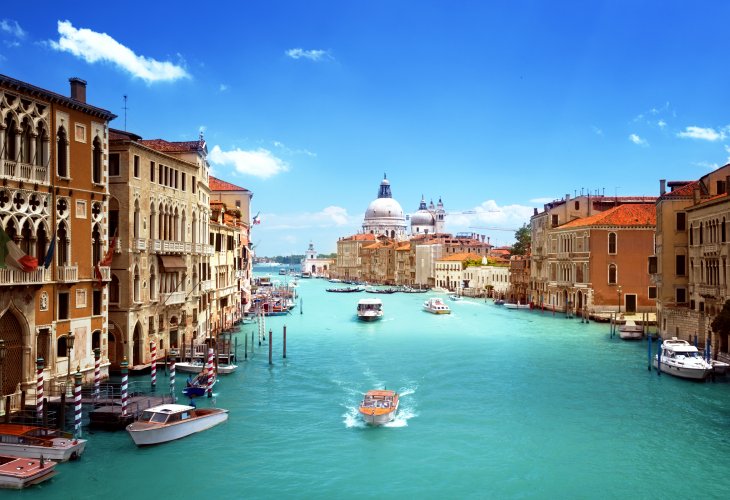Torah Personalities
A Brilliant Voice in Venice: The Story of Rabbi Yehuda Aryeh de Modena
From child prodigy to Renaissance rabbi and poet, his life bridged together Torah, scholarship, and personal struggles
 (Photo: Shutterstock)
(Photo: Shutterstock)A Remarkable Beginning in the Venetian Ghetto
In the year 1573, in the Great Synagogue of Venice, the congregation looked on in astonishment. A two-and-a-half-year-old boy ascended the bimah with his father and fluently read the entire haftarah out loud. The boy was Yehuda Aryeh de Modena, a child prodigy whose rare gift stood out even in Venice, a city brimming with Torah scholars and scribes.
Yehuda immersed himself in Torah and general wisdom from a young age. He studied under Rabbi Shmuel Yehuda Katzenellenbogen of Padua, and by the age of 23 was appointed as both a dayan (rabbinical judge) and preacher in Venice.
Scholar, Author, and Controversialist
Rabbi Yehuda authored dozens of books spanning all areas of Jewish thought: halachic (Jewish legal) responsa, theological arguments against Christianity, ethical works, and even an autobiography titled Chayei Yehuda (The Life of Yehuda). A man of letters, he also taught Christian scholars in Venice grammar, natural science, and languages.
In Chayei Yehuda, Rabbi Yehuda describes how he initially struggled to accept the idea of reincarnation, which was not widely accepted among earlier authorities. His doubts vanished after witnessing a young child speak fluently about events from a previous life.
Although he experienced many personal hardships, Rabbi Yehuda found constant solace in Torah and wisdom. In one of his poems, Divrei Yehuda, he wrote: "When my lips fall silent from the word of Hashem, no longer learning or studying, then let my soul long for death or for solitude."
A Family Story Marked by Tragedy and Resilience
Rabbi Yehuda traced his roots to the Italian town of Modena. In his own account, he shares that his great-grandfather, Rabbi Mordechai, was both a Torah scholar and a skilled physician. According to Rabbi Yehuda, local doctors, envious of Rabbi Mordechai, bribed his caregiver to poison his treatment, leading to his untimely death. On his deathbed, Rabbi Mordechai recited the verse, “O House of Jacob, come, let us walk,” and instructed his descendants to relocate. His family ultimately settled in Venice.
Among the many hardships Rabbi Yehuda endured was a painful experience with his son, who turned to gambling. In an attempt to help him, Rabbi Yehuda sent his son away from negative influences in Venice to Livorno. Instead of reforming, however, the young man chose a path of wandering, eventually traveling to Brazil, referred to at the time as "India," where he disappeared without a trace. Deeply pained, Rabbi Yehuda later authored a book for young people warning against the dangers of gambling and why it must be avoided entirely.
A Life Remembered in Poetry and Prose
Rabbi Yehuda was also a gifted poet and grammarian, and he composed verse in response to many of the events in his life. At the end of his autobiography, he wrote a poem to be engraved on his gravestone: "If the end of all things must be heard, then this is mine. My soul has gone to receive its reward; my body remains here. And to be remembered forever, this inscription is set with the words of my mouth."

